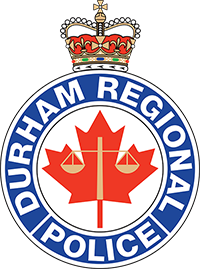When you are being abused it is important to remember help is available 24-7, 365 days per year. When you call 9-1-1, police will intervene.
When an incident is reported, officers will investigate and a report will be filed. The officer in charge determines if a crime has occurred and if an arrest is required. Make sure you obtain your report number and the officer's name and badge number.
Report resulting in no charges:
If the responding officers do not form reasonable grounds that a criminal offence has occurred, the incident will be documented but no charges will be laid by police. You may receive follow up from Victim Services offering support and referrals. You can also contact Victim Services directly at I-888-579-1520 ext. 3400.
Victim Services
Victim Services of Durham Region, a community based, not-for-profit program funded by the Government of Ontario, recognizes the importance of all victims, witnesses and their families being treated with compassion, respect and having access to the services that they need, when they need it most.
Working in partnership with the Durham Regional Police Service since 1998, Victim Services of Durham Region currently offers the Victim Crisis Assistance Ontario Program. The Victim Crisis Assistance Ontario Program provides support to individuals affected by crime and tragic circumstance that is victim-centered and culturally competent. It is important to note that you can contact VSDR for support at any time, there is no requirement to involve police to receive confidential support from Victim Services.
More information and their website: www.victimservicesdurham.ca/home#
Peace Bond
A peace bond is a protection order made by a court under section 810 of the Criminal Code. It is used where an individual (the defendant) appears likely to commit a criminal offence, but there are no reasonable grounds to believe that an offence has actually been committed.
In these situations, a person can obtain a peace bond against the defendant from the Court. The Court may impose specific conditions that are designed to prevent the defendant from committing harm to the person, their spouse or common-law partner, their child, or from committing damage their property.
Where the Court accepts the application for the peace bond, the defendant must obey the conditions of the peace bond or else he or she may face criminal charges. Peace bonds can be enforced anywhere in Canada and can be in place for up to one year. If the threat persists after one year, the peace bond can be renewed by application to the Court.
Obtaining a peace bond may take several weeks or even months, so peace bonds do not deal with emergencies. In an emergency, call 911.
For more information, read the Victims Right's in Canada Factsheet
In the event of an arrest:
If the responding officers form reasonable grounds that an offence has occurred and the accused is on scene, the accused will be arrested and charged.
• If the accused is not present, attempts will be made to locate and arrest the accused. If the accused cannot be found, a warrant for their arrest will be obtained. The victim will be advised by police when the accused has been arrested.
• The accused will be taken into custody and a determination made regarding release conditions. The accused may be released on a PTA/OIC or held for a Bail Hearing.
Appearance notice with or without conditions:
The accused is given a court date to attend to and released on conditions to 'prevent the continuation of the incident. A member of Victim Services will contact the victim shortly after the incident to review the release conditions, offer safety planning, support and referrals.
Bail Hearing: In cases where the accused has been held in custody for a bail hearing, a member from the Domestic Violence Bail Safety Program (open 7am to 5pm daily) will contact the victim shortly after the incident. The Bail Safety Program consists of police officers working in partnership with the Victim Witness Assistance Program (VWAP). They will ensure that the victim has an opportunity to discuss their concerns end what they would like to see happen. They will provide information about the court process, safety planning and community referrals. Victims are encouraged to contact this team at 905-743-2797.
The Victim Witness Assistance Program (VWAP) can accept clients once charges are laid. They provide information, assistance and support to victims and witnesses of crime to increase their understanding of, and participation in the criminal court process. The services are free of charge. The program helps victims and witnesses of violent crime, including domestic violence, sexual assault, physical or sexual child assault, hate crimes and the families of homicide victims. VWAP can be reached at 905-743-2790.
When charges have been laid, it is extremely important that all victims and witnesses keep police and the Crown Attorney's office up to date on any new contact information. Please call DRPS at 1-888-579-1520 and the Crown Attorney's Office at 905-743-2700.
Procedure for reporting a breach
The Criminal Code of Canada states that any person who violates or assists anyone in committing a violation of a condition of any release, may be charged with a criminal offence.
• Contact DRPS immediately by phone or attend a local station.
• Supply any relevant information and documentation.
• An officer will investigate to determine if a criminal offence has occurred.











